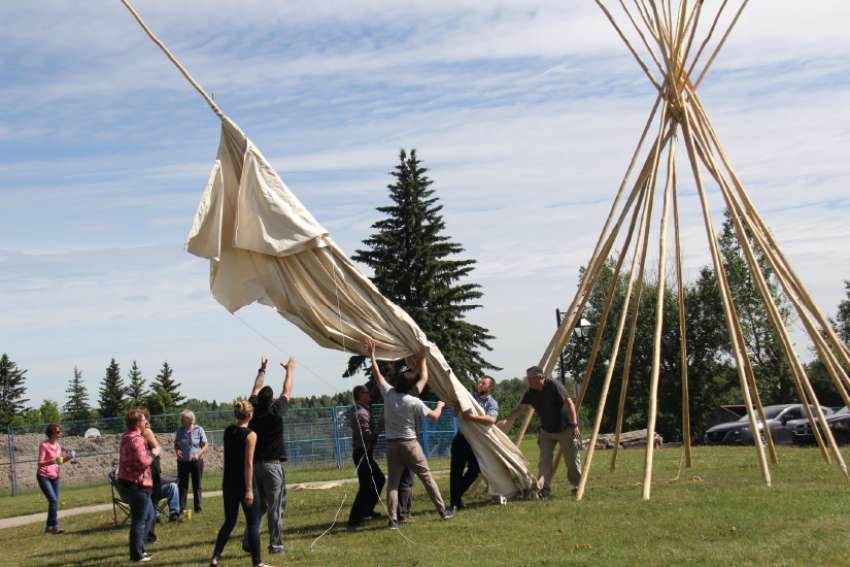Throughout the month of February, St. Mary’s University in Calgary has been hosting “Indigenous Voices: Inspired Stories of Hope,” a lecture series dedicated to giving members of Alberta’s Indigenous communities the opportunity to share their stories and histories with students and whoever else wants to listen.
It is a series that is just one more in the growing list of initiatives in Indigenous studies programs across Canada’s 22 Catholic colleges and universities, appealing to all sectors of the community.
“We started in the spring of last year by inviting elders and knowledge keepers to come to our campus and share their stories,” said Elizabeth Cressman, Continuing Education Co-ordinator at St. Mary’s and co-founder of the Indigenous Voices lecture series. “We are taught the Western perspective of Canadian history. History isn’t singular, it’s plural. This is a chance for us to hear a perspective we may not have heard before.”
Much of the tragic past for First Nations in southern Alberta centred around Treaty 7, signed in 1877, which gave the Canadian government ownership of about 130,000 square kilometres of land inhabited by five First Nations. In the ensuing years, as poverty gripped the First Nations living on reserves, it became clear the implications of the treaty were not fully understood and the Indigenous people accused the government of not living up to its promises. The human and legal repercussions of the treaty have been felt to this day.
To help make sense of the past and be part of the healing process, Cressman partnered with the university’s director of Indigenous Initiatives, Michelle Scott, to create a space for Indigenous history and perspectives.
“There was a great hunger within our community to hear the perspectives of Indigenous people,” said Scott.
“As we become more aware of what has happened through Truth and Reconciliation and the 94 Calls to Action, people are learning about the broken treaties and promises. There’s a desire to figure out how this happened and how we can mend this relationship.”
Each lecture series is based around a theme. As the name suggests, February’s theme is stories of hope — multi-generational Indigenous families speaking about their experiences and journeys towards healing.
“They are stories of resilience,” said Cressman. “How these families have gone from tragedy to living in fullness.”
Mary Ann Corbiere, a professor of Ojibwa language and Indigenous Studies, has been teaching at the University of Sudbury since the late 1970s. She has seen great progress in both Indigenous education and a willingness to learn the language.
“When our program started, it was more anthropological,” said Corbiere, whose first language is Ojibwa. “The program has come a long way. We offer more courses and more languages. The university itself has been very receptive to Indigenous cultures and perspectives being taught from the Indigenous perspective.
“The erosion of Indigenous languages has been so extreme. Kids are not learning it at home, most parents under 50 can’t speak the language anymore. Language courses are becoming the dominant way Indigenous students are exposed to their language.”
Cornier has also seen a shift in the demographics of her Introduction to Ojibwa course: She has students from all ages and ethnic backgrounds.
Scott has noticed a similar trend at the lecture series and says she learns something new at every lecture series.
“There’s a cultural difference between Western and Indigenous ways. For instance as a moderator, I am up on stage with the elders when they are sharing their stories. In Indigenous culture, it is very disrespectful to interrupt an elder but we have this Western concept of time constraints and sticking to a schedule. We have learned a lot about Indigenous protocols and respect while hosting these lectures. So many of the stories are vulnerable, heartfelt and deeply personal. You have to appreciate how generous and gracious these speakers are being when they share their stories. They are educating us and creating a dialogue that isn’t about anger and guilt.”
“It’s about lifting each other up and more importantly, how to do that.”

